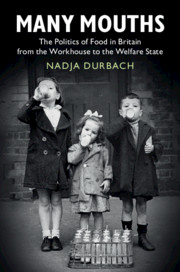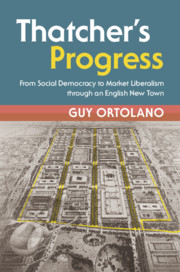Many Mouths
This compelling study explores food programs initiated by the British government across two centuries, from the workhouses of the 1830s to the post-war Welfare State. Challenging the assumption that state ideologies and practices were progressive and based primarily on scientific advances in nutrition, Nadja Durbach examines the political, economic, social and cultural circumstances that led the state to feed some of its subjects, but not others. Durbach follows food policies from their conception to their implementation through case studies involving paupers, prisoners, famine victims, POWs, schoolchildren, wartime civilians and pregnant women. She explores what government food meant to those who devised, executed, used, and sometimes refused, these social services. Many Mouths seeks to understand the social, economic, and political theories that influenced these feeding schemes, within their changing historical contexts. It thus offers fresh insights into how both the administrators and the intended recipients of government food programs realized, interpreted, and made meaning out of these exchanges, and the complex relationship between the body, the state and the citizen.
- Provides the first account of British government food programs over the entire 19th and 20th centuries, to offer a long-term view of British food policy
- Uses the crucial relationship between the state and food - the most critical scarce resource -to explore how government works both ideologically and in practice
- Demonstrates how the government's policies actually worked in practice and how people shaped and experienced food policy in their everyday lives
Reviews & endorsements
‘Many Mouths is an absorbing study of when, why and how the modern British state sought to feed its most vulnerable subjects. Durbach's major achievement is to show us how the state was literally made manifest – locally, nationally and imperially – through the practices used to feed people. This compelling book should be read by all those interested in the politics of food and its central place in modern British history.' James Vernon, University of California, Berkeley
‘Many Mouths is a sweeping, richly textured, and important study of government feeding that takes us from the Dickensian workhouse of the 1830s to the debates surrounding the cups of welfare orange juice served to expectant mothers and children after the Second World War. Throughout, we see how food (and drink) is good to think with and to govern with as well.' Erika Rappaport, University of California, Santa Barbara
‘Many Mouths is a magisterial study of the complex history of British state feeding from the 1830s to the 1960s. Durbach provides a compelling analysis of how the distribution of food is an elemental field through which power relations were (and are) articulated and contested. This is an extremely important book.' Christopher Otter, Ohio State University
‘… goes back to the 19th century to examine some of the origins of our current ‘food system’ and how embedded attitudes to food - and of who is deserving of feeding - have shaped policy to the present day … casts an interesting light on the way in which people’s relationships with food became entwined with their relationships to the British state.’ Erica Wagner, Financial Times
‘… the author is to be praised for moving beyond the conventional top-down focus on planners and administrators and conveying the voice of the recipients of relief.’ M. J. O'Brien, Choice
‘… Durbach’s study provides compelling evidence that there are certain irreducible realities about food itself that resist even well meaning attempts at ameliorating undernutrition no matter what form it may take.’ Travis A. Weisse, Bulletin of the History of Medicine
Product details
May 2020Hardback
9781108483834
440 pages
235 × 160 × 22 mm
0.7kg
15 b/w illus.
Available
Table of Contents
- Introduction. The politics of pickles
- 1. Old English fare: festive meals, the new Poor Law, and the boundaries of the nation
- 2. Gendered portions and racialized rations: the classification of difference in British and colonial prisons
- 3. Famine, cooked food, and the starving child: rethinking political economy in colonial India
- 4. Tommy's tummy: provisioning POWs during the first world war
- 5. The science of selection: malnutrition and school meals in the interwar years
- 6. Every sort and condition of citizen: British restaurants and the communal feeding experiment during the second world war
- 7. Nations out of nurseries, empires into bottles: the colonial politics of welfare orange juice
- Conclusion. How the sausage gets made.







